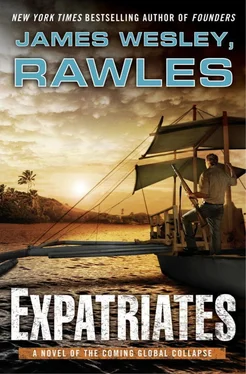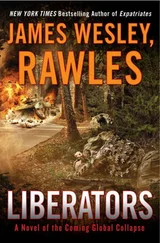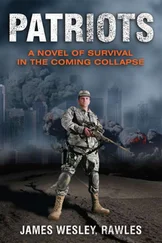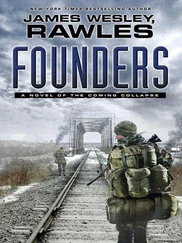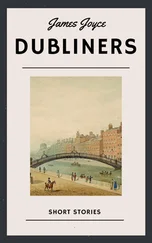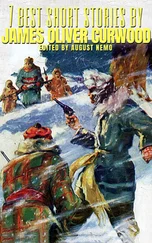The local economy was enhanced by the chain of lakes and other area lakes because water transportation—mostly rowboat and small sailboat—connected the cities of Tavares, Mount Dora, Eustis, Leesburg, and the communities of Howey-in-the-Hills, Astatula, and those near the Ocklawaha River.
It was the scarcity in the region that dictated the roadblocks. There was no longer any significant agriculture nearby, so the citizens had to scramble to become self-sufficient. Most of the large citrus groves had been killed by the freezes in the 1980s and replaced by residential developments. The small groves that remained and the backyard trees became threatened by disease—greening and canker—which killed some trees.
Most of the “muck” farms—wetland converted to vegetable farms—near Zellwood and Apopka reverted to swamp because of environmental regulations. After the Crunch, however, this process was quickly reversed.
By the early 2000s, there was very little commercial cattle production in the area—just a few hobby farms and ranchettes. Immediately after the Crunch, all of the heifer calves were saved for breeding stock, but it was an agonizingly slow process to build up production. Anyone with a dairy cow was considered rich. Heifer calves were pampered and closely guarded. Their asking prices were enormous—as much as two ounces of gold. The local lakes and rivers provided fish, turtles, and alligators, but within two years they were fished out. By that time, however, gardening had begun to flourish, as had raising chickens, rabbits, ducks, and pigs.
The population of Florida was dominated by retirees. Largely because of untreated chronic health conditions and starvation, the state’s population dropped thirty-five percent in the first twenty-four months following the Crunch. The Great Die-Off had begun.
“The people are immensely likable—cheerful, extrovert, quick-witted, and unfailingly obliging. Their cities are safe and clean and nearly always built on water. They have a society that is prosperous, well ordered, and instinctively egalitarian. The food is excellent. The beer is cold. The sun nearly always shines. There is coffee on every corner…. Life doesn’t get much better than this.”
—Bill Bryson,
In a Sunburned Country
Casuarina, Northern Australia—November, One Year Before the Crunch
Chuck’s first Christmas in Australia gave him some culture shock. Since Christmas came at midsummer, the holiday mainly revolved around swimming pool parties and barbeques. Instead of citrus and fruitcakes, the fruit most often served with holiday meals was mangoes. There was some turkey served at Christmas, but prawns and crayfish predominated. There was a lot to like about Australia, but it took some adjustment.
Although he missed his home, Chuck took infrequent vacation trips to see his family in Texas. Part of his reluctance to travel was his frustration with the U.S. government’s TSA agents, who made his life miserable. Because he worked regularly with explosives, all of his clothing, belts, wristwatch band, and even the exterior of his luggage were perennially contaminated by trace amounts of dBX and PETN—the explosive filling used in detonating cord. The legions of blue-gloved “Scope and Grope” TSA drones were endlessly swabbing pieces of passenger luggage and running the swabs through their spectroscopic scanners. It all got worse in 2012 when the TSA fielded their Picosecond Programmable Laser scanners. These scanners were particularly sensitive. And, instead of scanning just a few random swabs, they were able to scan the clothing of everyone who walked by.
Many times Chuck missed his scheduled flight because he was shunted off to TSA back rooms for “interview” interrogations and secondary searches. He would often be left to sit by himself for what seemed like ages. He would mumble to himself, “Two by two, hands of blue,” and watch the minutes tick by on his wristwatch. The process was always agonizing.
Invariably, the TSA agents would seem hesitant, consult among themselves, and then push his case up the chain of command. A senior TSA agent would then personally interview Chuck, who would again have to explain the nature of his work. He’d then be released as “free to go,” but without any apology.
Chuck lived in a one-bedroom leased cottage in Casuarina. He had originally looked in the nicer adjoining suburb of Tiwi, but he couldn’t find a cottage in his price range. He didn’t need much space because he had brought just a few possessions with him from the United States. These were mostly boxes of books, clothes, and a couple of guitars. Even though it was a long drive from most of his job sites, he chose the town because it had good shopping and a seven-screen cinema. He was not much interested in shopping personally, but he knew that shopping malls and movie theaters attracted young women. The shopping malls, he reasoned, were his best chance of meeting a potential spouse, since it drew shoppers from as far away as 125 miles. Of course, once he met Ava, his proximity to the malls no longer seemed very important.
The evening after their first meeting, Chuck lay anxiously in bed, thinking about what Ava had said to him. Finally, realizing that he would get no sleep, he turned on his bedside light. Normally when he had trouble sleeping, he would get out his twelve-string guitar and play familiar tunes or improvisations until he felt sleepy. But tonight what she had said was hounding him. He dug through one of the boxes of books that he’d had shipped from his parents’ home in Texas but had never unpacked, and found his dusty Bible.
“Matthew, Mark, Luke, and John,” he recited, as he turned to the book of John. He began to read. At first he tried to remember exactly what Ava had said, as if it was a note jotted down in one of his college lectures. “Personal Savior” was what she had said. But then he just got into reading. Chuck recognized John 3:16. Yes, I believe in Jesus , he thought. I’m smart enough to see that none of us would be here if it wasn’t for God making us . But moving on to the next verse, he saw that there was more. It said that whoever did not believe would be condemned. He pondered the word condemned . That has to be something more than just being mistaken—condemned to Hell? he wondered. He came to chapter six and was perplexed by Jesus’ bizarre sermon about his body being bread. That story had confused him in Sunday school, and it was not any clearer now. But as he read the rest of the book, it began to come into focus. Jesus was the good shepherd. He really was born on Earth to die for sinners.
Over the next few days, Chuck kept reading. He raced through the book of Acts, amazed by Paul’s conversion. He reached Romans, and everything fell into place. He would later learn to love Paul’s epistles for their depth and brilliant insight. Paul spelled out in concrete terms what Chuck had been trying to understand. He was a sinner. This sin was much more than the porn that he’d watched until he got his life straightened out during his freshman year of college. He realized that his indifference was a dishonor to his Creator. He prayed quite simply, “God, Lord, I’ve been going the wrong way, ignoring everything you’ve done. I’ve only been interested in my plans, and not cared at all that you made me. I’ve been your enemy! Thank you for showing me that. Thank you for dying for me. That’s insane! But I need it. I need you to forgive me and save me.”
One evening, a month after he had become a saved Christian, Chuck called Ava’s cell phone number. He told her earnestly, “I do know where I stand with God now, Ava. I had always reckoned that if God took care of His business, and I took care of mine, we’d be all right. But I get it now. John’s gospel is about God coming to us and saving us. The fact is, I thought I had it together, but I was flat wrong. I kept reading and got to Paul. I realized I was dead—absolutely dead in my sins! God showed me that I needed Him. Christ died for my sins so that I could live with Him. I can’t ignore that! He’s given me real life.”
Читать дальше
